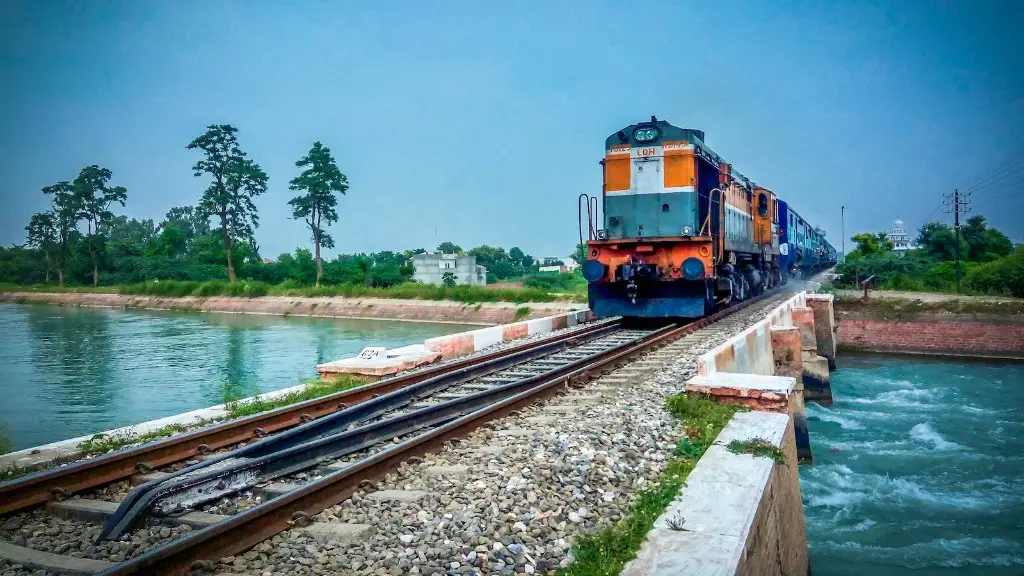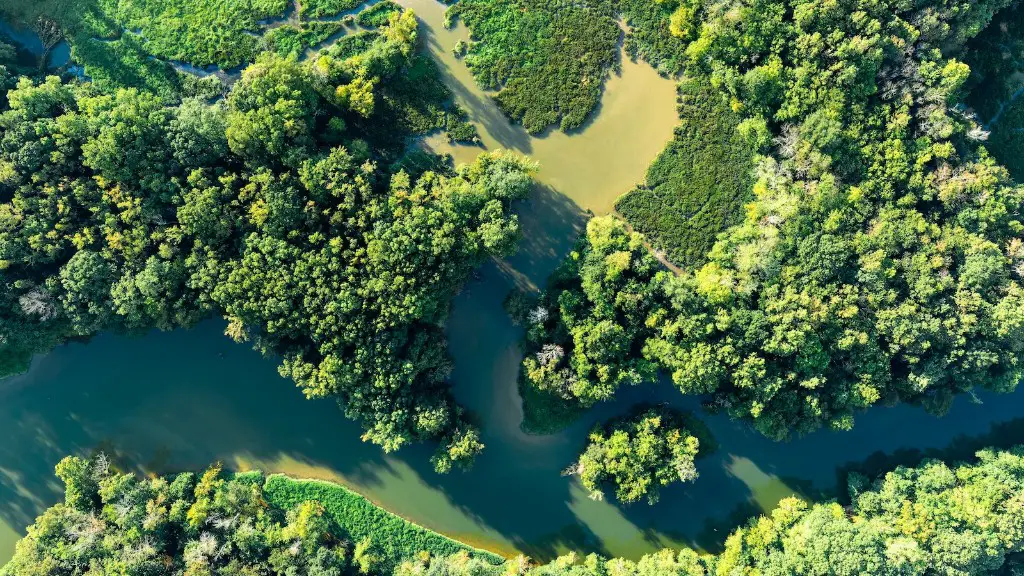The Influence of the Nile on Ancient Egyptian Civilization
The flooding of the Nile river was one of the most important aspects of Ancient Egyptian civilization. The Nile is believed to have been the birthplace of one of the world’s oldest continuously cultivated civilizations, and its influence over the area was of great importance. The annual floods of the Nile served as a vital source of water, nutrient-rich soil, transportation, and food supplies for the Ancient Egyptians.
The Nile floods would inundate the lands surrounding the river, making them ideal for agriculture. This allowed for the rise of agriculture-based urban settlements, the first of which is believed to have been the city of Memphis. By fertilizing soil with the nutrient-rich silt deposited by the floodwaters, agricultural yields became drastically increased and allowed for the harvests that supplied most of the Ancient Egyptians’ food. This flood cycle continued to be an essential factor in the sustainability of ancient agricultural practices.
The water from the Nile also gave ancient Egyptians multiple forms of transportation. The irrigation canals that were built for agriculture also served as roads for boats and rafts. This reliable and cost-effective form of transportation allowed for easy movement of goods and people throughout the region. Its navigable waters made it one of the most important elements in Egypt’s economy, commerce, and military activity.
It is no surprise that the Ancient Egyptians had such a deep reverence for the Nile, with some of the first recorded accounts of its flooding and use dating back to the Third Dynasty. Ancient Egyptian literature frequently references the Nile as a source of life and prosperity and considered it a blessing from Egypt’s gods. The Nile played an immense role in Ancient Egypt’s culture and is still as important today as it was thousands of years ago.
The Economic and Social Benefits of the Nile
The flooding of the Nile provided immense economic and social benefits to the Ancient Egyptian people. The annual flooding of the river more than doubled the usable agricultural land in the region, while simultaneously providing nutrient-rich silt to the fields. This allowed for increased food harvests and increased trading opportunities. Increased crop yields meant less food shortage, allowing for population growth. This resulted in a larger population of laborers who could work in fields or construct public buildings. Therefore, the economy and population of the Egyptians were able to steadily grow.
The fact that the Nile could flood annually meant that the farmers could have a reliable harvest of the same crops year-round. This allowed for a routine production of food and increased the variety of foods available to be traded. As food surpluses increased and surplus produce was traded, more wealth came into the hands of the Ancient Egyptians. This, in turn, allowed for increased expenditure in other aspects of life, such as education and architecture.
The Nile also provided multiple leisure activities for Ancient Egyptians. Fishing, sailing, and swimming were a few of the activities that were popular among the people due to the river’s reliable and abundant supply of food and water. Playing board games like ‘senet’ and ‘mehen’ was also a common pastime for Ancient Egyptian people along the banks of the Nile.
The river was also a crucial part of Ancient Egyptian religion and culture. The flooding of the river was believed to bring good luck, while the floodwaters were thought to be a gift sent by the gods. It was believed that Horus, the god of the sky, had sent the flooding of the Nile to give life to the people ofEgypt. This is believed to be why the Ancient Egyptians considered their pharaoh to be a manifestation of the gods, as he controlled the flow of the Nile and thereby held sway over agriculture and human life.
The Historical Events Linked to the Nile
The Nile has been the site of some of the most pivotal events throughout history. The Ancient Egyptians built many of their most iconic monuments around the Nile and many of the most famous cities in modern Egypt dot its banks. One of the most important events in Ancient Egyptian history to take place along the Nile was the cataracts of the Nile, or the great damming event of the 8th century BC. This resulted in the creation of the Aswan post and marked a major turning point in Ancient Egyptian history.
The flooding of the Nile also impacted the development of Christianity in the region. After the construction of the dam, the flooding of the Nile decreased by an average of 80 – 90%, leading to decreases in food production and famines in the region. This caused many people to turn to a new religion, Christianity, as they believed that it would bring relief and salvation from their suffering. As a result of the increased popularity, Christian churches were built around the banks of the Nile and Christian masses were held regularly.
The Nile has also been the site of several major political events over the centuries. The Battle of the Nile was a famous naval battle during the French Revolution in which English and French forces clashed over control of the river. This battle ultimately resulted in a decisive British victory and ensured continued control of the Nile for the British.
The Nile was also the site of the revolt of 1822, which saw the Egyptians successfully overthrow their Turkish rulers and become independent after over three centuries of rule. This revolt was a major turning point in the history of the Egyptian people and marked the beginning of a new era in the country’s development.
Modern Human Impact on the Nile
Today, human activity has had a major impact on the flooding of the Nile. The construction of dams and reservoirs along the banks of the river has resulted in the disruption of the natural cycle of the river. This has caused decreases in water levels and has resulted in decreases in crop yields, while simultaneously increasing the risk of floods.
The situation has been further exacerbated by the introduction of agricultural chemicals and fertilizers into the ecosystem. These chemicals have caused an increase in algae growth, which has further decreased the water flow of the Nile. In addition, increased human use of the river has led to over-fishing, meaning that there is less fish available for commercial fishing, which was a major source of food for the Ancient Egyptians.
As a result, humans must take greater care of the Nile in order to protect it for generations to come. More research and understanding is needed in order to better manage the resources of the river and to ensure that it remains a vital part of the ecology of the region. It is also important to make sure that the river does not become a source of conflict between countries or other stakeholders in the region.
Conclusion and Preservation of the Nile
The flooding of the Nile played an important role in the development of Ancient Egyptian civilization and its influence can still be seen today. Although human activities have had a negative impact on the river, it is possible to reverse some of these effects by taking greater care in how we use the resources of the river. If these efforts are made, it is possible to ensure the preservation of the Nile and its significance to Egyptian history and culture for centuries to come.



